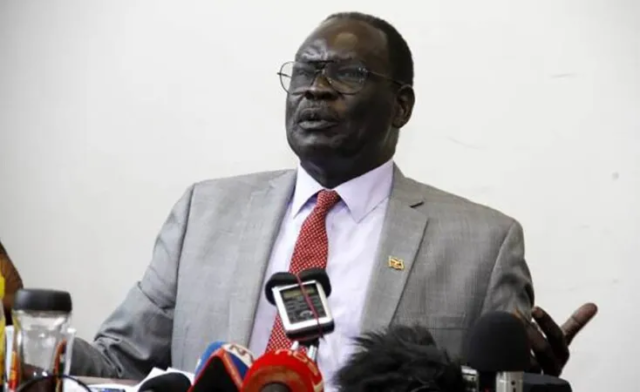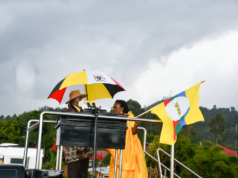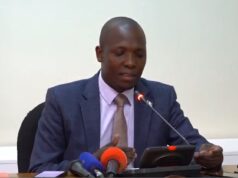
The Minister of Relief Disaster Preparedness and Refugees Honourable Hillary Onek has given assurance on protection and rights of refugees in Uganda.
This follows a request by the International Labour Organisation (ILO) Deputy Regional Director for Africa Coffi Agossou, for host countries to grant refugees the right to freedom of movement and permit them to have access to paid employment.
Speaking at the three-day global conference on inclusive private sector development in forced displacement context at Munyonyo Commonwealth Resort in Kampala, Agosu said that many host countries limit the refugees freedom of movement and restrict their access to labour markets. This he says is despite them being signatory to the 1951 United Nation Convention that mandates parties to permit access to wage earning employment to refugees and right to freedom of movement.
However, speaking to a local media outlet on Friday, Minister Onek says that Kampala capital city alone hosts over 150,000 refugees who are engaged in different businesses. “Freedom of movement, total freedom of labour. They (refugees) are free like anybody else in Uganda except that they are not allowed to participate in politics.
They are employed, go to our hospitals, their children go to schools, and when they are paid they get the same amount like any professional from Uganda is paid,” adding that the only challenge that the refugees face could be the desire to return to their country of origin but are hampered by insecurity in their home countries.
Uganda hosts the largest number of refugees in Africa as of 2022, with over 1.5 million people, followed by Sudan that provides asylum to just over 1.1 million people while Ethiopia hosted around 880,000 refugees.
On the international scale, Turkey hosts the largest number of refugees with over 3.67 million refugees. The majority—3.64 million—are “Syrians under temporary protection.”
Most Syrians in Turkey live in host communities instead of informal tented communities, although many still live at bare-minimum conditions. Turkey is also host to refugees from Iraq (over 10,000), Afghanistan (nearly 8,400), and Iran (nearly 4,500).






